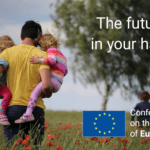Last June the Commission published the results of the 2020 Digital Economy and Society Index (DESI), which monitors Europe’s overall digital performance and tracks the progress of EU countries with regard to their digital competitiveness.
This year’s DESI report shows that there is progress in all Member States and in all key areas measured in the index. This is even more important in the context of the coronavirus pandemic, which has shown how essential digital technologies have become, allowing work to continue, monitoring the spread of the virus or accelerating the search for cures and vaccines.
Leaders in overall digital performance in the EU
Finland, Sweden, Denmark and the Netherlands are the leaders in overall digital performance in the EU. Malta, Ireland and Estonia are following right after. The International Digital Economy and Society Index (I-DESI) shows that the best performing EU countries are also worldwide leaders. The largest EU economies are not digital frontrunners, which indicates that the speed of digital transformation must accelerate for the EU to successfully deliver on the twin digital and green transformations. Over the last 5 years, Ireland has made the most significant progress, followed by the Netherlands, Malta and Spain. These countries also perform well above the EU average as measured by the DESI score.
Main findings in 5 digital areas
The Digital Economy and Society Index tracks the progress made in Member States in 5 principal policy areas, namely connectivity, digital skills, internet usage by individuals, integration of digital technologies by businesses and digital public services.
Connectivity
Connectivity has improved but more needs to be done to address fast-growing needs. Member States are working on the transposition of new EU rules adopted in 2018 into national legislation, with a view to fostering investment in Very High Capacity Networks, both fixed and mobile.
- Next Generation Access (NGA) coverage increased to 86% of households by 2019.
- Very high capacity fixed networks (VHCN) are available to 44% of households.
- 4G networks cover almost the entire European population, but little progress has been made in 5G spectrum allocations.
- Finland, Germany, Hungary and Italy are the most advanced in the preparation of 5G.
- Denmark, Sweden and Luxembourg have the highest scores in connectivity overall.
Human capital and digital skills
More progress in digital skills is needed, especially since the coronavirus crisis has shown that adequate digital skills are crucial for citizens to be able to access information and services. A large part of the EU population, 42%, still lacks at least basic digital skills. In 2018, some 9.1 million people worked as ICT specialists across the EU, 1.6 million more than 4 years ago. 64% of large enterprises and 56% of SMEs that recruited ICT specialists during 2018 reported that vacancies for ICT specialists were hard to fill.
- The percentage of people with at least basic digital literacy reached 58% in 2019.
- 64% of large companies and 56% of SMEs that hired ICT specialists during 2018 reported that ICT specialist vacancies are difficult to fill.
- In Romania and the Czech Republic, at least 80%f companies that recruited or tried to recruit ICT specialists reported such difficulties.
- Only one in six ICT specialists are women.
- Finland, Sweden and Estonia are the most advanced in human capital.
Use of Internet Services by citizens
Although the pandemic has seen a sharp increase in internet use, the trend was already present before the crisis:
- 85% of Europeans surf the internet at least once a week (compared to 75% in 2014).
- The use of video calls has grown the most, from 49% of internet users in 2018 to 60% in 2019.
- Internet banking and shopping are also more popular, being used by 66% and 71% of Internet users respectively.
- Only 11% of Europeans completed an online course in 2019.
- In this category, the figures range from 67% in Bulgaria to 95% in Denmark.
Integration of Digital Technology by businesses
Enterprises are becoming more and more digitised:
- 38.5% of large companies rely on advanced cloud services.
- 32.7% use large data analysis.
- However, the vast majority of SMEs do not use these technologies, only 17% use cloud services and only 12% carry out data analysis.
- The best-ranked countries in terms of these indicators are Malta, with 24% of companies using large data, and Finland, with 50% relying on cloud services.
- Only 17.5% of SMEs sold products online in 2019. In contrast, 39% of large companies used online sales in 2019.
- The leading EU countries in business digitisation are Ireland, Finland, Belgium and The Netherlands.
In order to boost e-commerce, the EU has agreed on a series of measures ranging from ending unjustified cross-border barriers and facilitating cheaper cross-border parcel deliveries to ensuring protection of online customer rights and promoting cross-border access to online content. Since December 2018, consumers and companies are entitled to find the best online deals throughout the EU without experiencing discrimination based on their nationality or place of residence.
Digital Public Services
Finally, there is an increasing trend towards the use of digital public services in the areas of eGovernment and eHealth, which allows for more efficiency and savings for governments and businesses, improved transparency, and the greater participation of citizens in political life.
- Quality as well as use of digital public services increased in 2019.
- 67% of Internet users who submitted forms to their government reported that they now use online channels (compared to 57% in 2014).
- The best countries in this area are Estonia, Spain, Denmark, Finland and Latvia.
Infography
More information
The Digital Economy and Society Index – DESI 2020
Country performance in digital
Digital technologies – actions in response to coronavirus pandemic







Leave a Reply